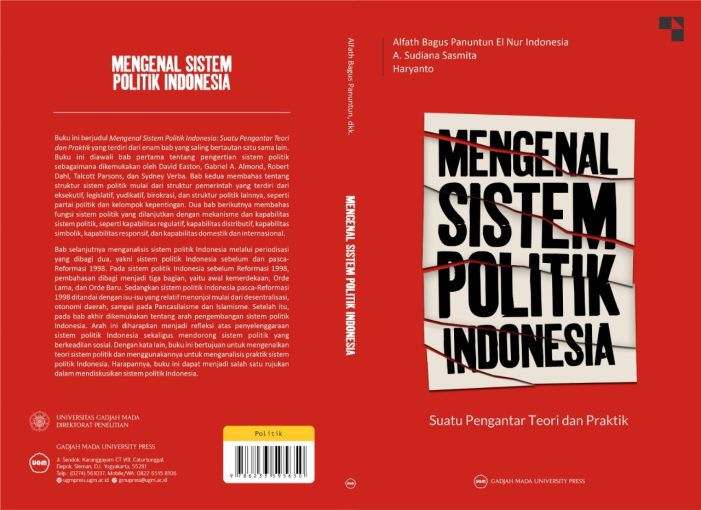
The Faculty of Social and Political Sciences (FISIPOL) at Universitas Gadjah Mada (UGM) continues to affirm its academic excellence with the launch of a new scholarly book authored by three faculty members from the Department of Politics and Government: Alfath Bagus Panuntun El Nur Indonesia, M.A., A. Sudiana Sasmita, Ph.D., and Prof. Haryanto.
Titled “Understanding Indonesia’s Political System: An Introduction to Theory and Practice”, the book offers a significant contribution to political science literature in Indonesia. It serves as a strategic reference for students, academics, and practitioners seeking a deeper understanding of the complexities of the country’s political landscape.
Structured into six interconnected chapters, the book is designed to guide readers through the theoretical and practical dimensions of political systems. The first chapter provides foundational insights by referencing prominent political theorists such as David Easton, Gabriel A. Almond, Robert Dahl, Talcott Parsons, and Sydney Verba. These theoretical perspectives set the stage for more specific explorations into Indonesia’s political structures.
The second chapter examines key state institutions, including the executive, legislative, and judiciary branches, alongside the roles of bureaucracy, political parties, and interest groups. This is followed by two chapters dedicated to the functions of the political system and its various capabilities—including regulatory, distributive, symbolic, responsive, and international-domestic capacities.
A central focus of the book is its analytical review of Indonesia’s political system across two major eras: pre- and post-1998 Reformasi. The authors trace the evolution from the early independence period, through the Old Order and New Order regimes, to the post-Reform era, which is characterized by critical issues such as decentralization, regional autonomy, and the ideological interplay between Pancasila-based nationalism and Islamism.
The concluding chapter offers a critical reflection and forward-looking vision for Indonesia’s political system, emphasizing the importance of developing governance rooted in social justice and substantive democracy.
With this publication, FISIPOL UGM strengthens its role as a leading hub for social and political science development in Indonesia. The book represents not only a rigorous academic work but also a relevant and visionary contribution to public discourse on democracy and governance in the country. It is expected to become a key reference for analyzing and shaping a more inclusive, just, and democratic political future in Indonesia.
The book is available for access at the following link.
